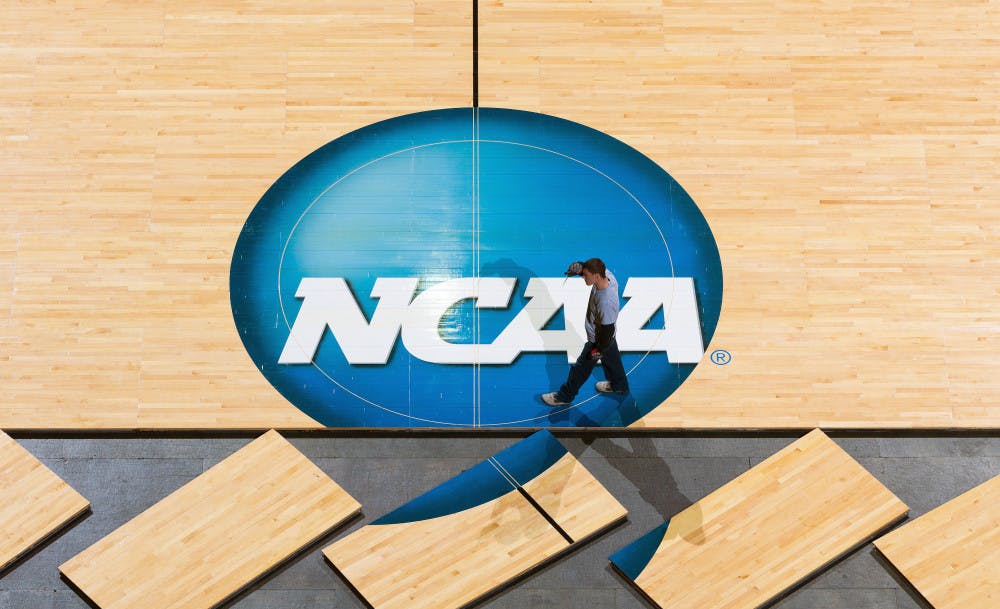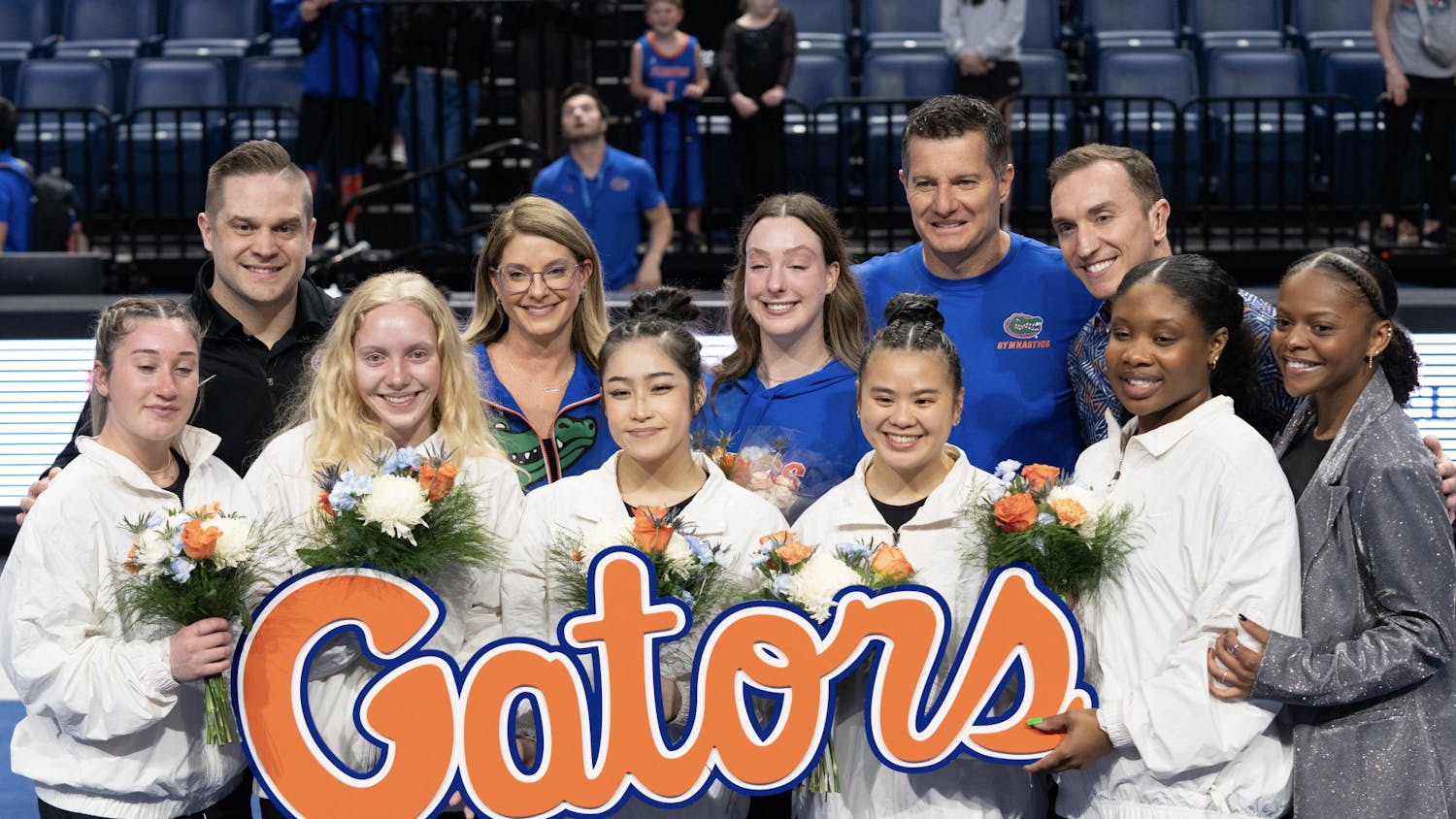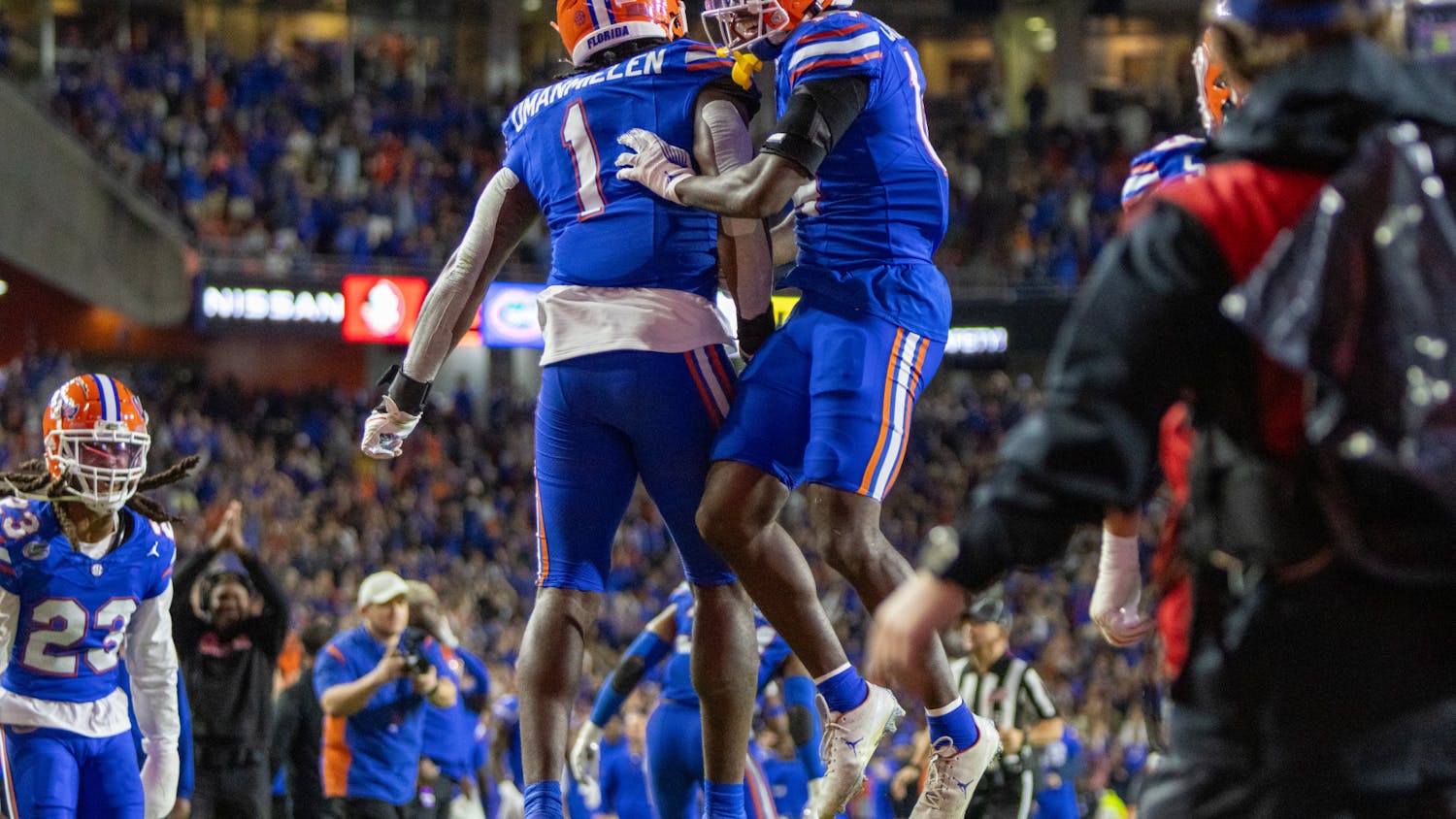In 2015, anything and everything can be crowdfunded — from mission trips, to pet veterinary bills to potato salad.
So Tony Klausing decided he’d start his own crowdfunding website called Fanpay.org with three other co-founders to try to raise money to compensate NCAA student athletes. Now, he has a message for NCAA president Mark Emmert.
"I would tell Mr. Emmert that time and time again the NCAA emphasizes that it is primarily an organization that is dedicated to the education of its student athletes, and I would say if that truly is the primary priority of the NCAA, then you should embrace Fanpay," Klausing said.
"Because our mission is to help college athletes graduate, to improve graduation rates and to give them a down payment on life for when they finish their degree."
Fanpay hopes to give that "down payment" by setting up a way for fans to donate money to any college student, but that is merely an illusion.
Opening the software platform to all students made sense to Klausing. It didn’t cost any extra to do so, and added "40 times" the amount of potential customers. But there is no doubt the direction that donation money is really intended to flow is towards student athletes.
"We’re a crowdfunding website and crowds don’t show up to watch kids do their chemistry homework," Klausing said. "They show up to watch kids play football."
In December, Fanpay began accepting money to be held in escrow accounts until the recipient graduates. If the student declines the gift, the money will be refunded to the donors.
As of press time, the website has raised $1,327.03.
Former UCF tight end Justin Tukes and former Texas Tech wide receiver Bradley Marquez have the most money pledged to them at $150 each.
The most high-profile athletes with money pledged to them on the site are Alabama offensive lineman Arie Kouandjio ($100) and Ohio State quarterback Cardale Jones as well as running back Ezekiel Elliott (both $50.01).
Klausing says the website isn’t out to reap millions of dollars, but just a "little bit more" than an athlete has right now.
To those who say it’s unfair that some athletes will receive more money than others, Klausing responds by saying it’s too early to tell if that will be the case, and he’s waiting to "let this innovation take its course."
Klausing and his co-founders haven’t made any money yet personally, but the plan is to charge a two-to-six percent fee on top of all contributions depending on the method of donation. He said that figure is equal to what popular crowdfunding websites like Kickstarter take, and claims most of the money taken off the top will go to credit card and Automated Clearing House processing fees.
When asked how long Fanpay can stay afloat without contributions, Klausing declined to answer, only saying "big ideas sometimes take longer to realize than we wish."
Fanpay launched in August, but it did not initially begin to accept contributions. By Sept. 30, the NCAA had taken notice, and the University of Florida was the first of 245 schools to send Klausing and his co-founders a formal response.
The first cease-and-desist letter hit Klausing’s desk like a ton of bricks. He thought bringing "collaborative change" that is "based on the value of education" would win over schools. He was, in his own words, "naive" in not understanding how staunchly entrenched the economic interests of the NCAA’s member institutions really are behind the cloak of amateurism. The NCAA is the one-eyed monster in Indianapolis, Indiana, but it is in essence a front for what is really the combined interest of nearly 1,300 schools.
UF’s letter — written by Jamie McCloskey, the senior associate athletics director in charge of compliance at UF -- is clear. Citing NCAA bylaw 12.1.2, the letter states "if a student-athlete accepts a promise of pay, even if the money is to be received following their playing career, they would be deemed immediately ineligible as they would lose their amateur status."
Florida asked Fanpay to stop raising funds on behalf of its student athletes and requested the use of the name, image and likeness of their student athletes on the website be removed.
"I think they’re trying to bully us out of existence. I don’t think it’s right," Klausing said. "We are four young, thoughtful, considerate co-founders and we want to work with schools and work with the NCAA to design a platform which benefits all stakeholders while at the same time emphasizing education."
Besides the cease-and-desist letter, UF has made no further contact with Fanpay, and the school’s compliance department did not respond to a request for comment.
The NCAA has not legally responded to Fanpay directly, and also did not respond to an inquiry for comment, but it did publish an educational column on Nov. 30 addressing the topic of crowdfunding in general. The column states that unless the individual athlete, or the school acting on his or her behalf, takes steps to stop the crowdfunding website from raising money for them the athlete can be ruled ineligible.
But what if the schools and athletes just ignore the crowdfunding websites? It seems simple enough: plead ignorance when the NCAA comes investigating and you’re free and clear. But Kevin Trahan, a college football writer at SB Nation who specializes in NCAA issues, says that because of the NCAA’s moving-target-style enforcement strategy, the association could use Fanpay to leverage athletes against schools.
"If they wanted to they could definitely say ‘Hey this kid clearly knew about this when he was there and he took money for playing during these years, and therefore because he took the money for playing during these years you lose your wins from these years’, something like that," Trahan said. "I think that’s what the schools are afraid of."
In January, athletic directors in the power-five conferences voted to grant full cost of attendance to its athletes and also let them borrow against their potential future earnings to buy loss-of-value insurance in case of a career-ending injury.
When asked in early February, UF athletics director Jeremy Foley said he was pleased that the full-cost-of-attendance era had arrived, but he’s against a potential pay-for-play future in collegiate athletics.
"I’ve always been an opponent of compensating student athletes," Foley said.
"We’ll do as much as we can for them, and (full cost of attendance) is a perfect example. If we’d do some things as it relates to grad school, that would be good as well. A stipend for student athletes? I’ve always had a problem with that and I hope it doesn’t go that way."
No UF athletes have any money pledged to them, but former defensive back Loucheiz Purifoy’s profile has 113 views, followed by linebacker Jarrad Davis (61) and basketball player Alex Murphy (56).
Southeastern Conference Commissioner-select Greg Sankey echoed a similar stance about the new frontier of student-athlete compensation at his introductory press conference during the 2015 SEC Men’s Basketball Tournament.
"I’ve been clear that cost of attendance is centered on the student athlete’s education, which is at the center of what we do and is really the appropriate boundary for the provision of the type of financial aid support through athletic scholarships," Sankey said.
He did not elaborate on crowdfunding or any other type of student athlete pay beyond that of athletic scholarship.
While crowdfunding in theory may seem like a revolutionary way to compensate students, Trahan hit on the biggest issue when it gets put into practice: the crowd must actually fund the website in order for it to continue. Trahan sees fans as willing to help out in specific cases, like Baylor running back Silas Nacita claiming to be homeless, but not so willing to contribute enough to fund entire rosters.
"If you ask fans to pitch in to get a star recruit to their schools, and if you see like a big story like this Baylor thing, I think they’d pitch in for that too, but I’m not sure they’re just going to pitch in to help athletes when they’re already (in school)," Trahan said. "They already have what they want. They have their star athlete, they have the player. The player is simply someone for their entertainment, which is kind of a terrible thing, but it seems like that’s sort of how fans act."
The ideal step for Fanpay’s future is for schools to set up their own crowdfunding systems through its booster clubs or working through Fanpay to do so. Of course, that is not something that the schools can do on their own. It would take wholesale reform at the top, and would take a coalition of member institutions to come together to do so if the NCAA isn’t forced to by the courts.
Tony Klausing may be on his crusade for change, but for Trahan, the jury is out on how successful Fanpay can be and what amount of change it will actually bring.
"The thing that could really change it from the outside would be one of these huge lawsuits like (the antitrust lawsuit against the NCAA by sports labor attorney Jeffrey) Kessler, where the courts basically say ‘you have to,’" Trahan said. "It’s hard for me to see them being forced to change just from like what Fanpay’s going to do. I don’t know if they would fight it but I don’t know if it would make that much of a difference, like that’s going to be the thing that ultimately changes the NCAA."
Follow Richard Johnson on Twitter @RagjUF
Workers place the basketball court on the floor at the CenturyLink Center in Omaha, Neb., Tuesday March 17, 2015. The second and third rounds of the NCAA Men's Basketball Tournament will take place this weekend. Tuesday March 17, 2015. The second and third rounds of the NCAA Men's Basketball Tournament will take place this weekend. (AP Photo/The World-Herald, Matt Miller )






